Meet the Editors: Q&A with Angus O’Ferrall, Social Media Editor for Parasitology
Welcome to our “Meet the Editors” series, where we interview the editorial team about their work and their relationship to the journal.…

Welcome to our “Meet the Editors” series, where we interview the editorial team about their work and their relationship to the journal.…

From 99 faecal samples we identified 21 species of intestinal parasites – everything from common worms to various protozoa and amoebae. Overall, seven in ten monkeys harboured at least one parasite, and Guinea baboons averaged nearly three different species apiece.

The number of Uncrewed Aerial Vehicles (UAVs) or ‘drones’ in UK skies has increased significantly over the last decade and this trend is set to continue.

Our latest article in Primary Health Care Research and Development details the route to successful implementation of a novel programme called CONQUEST across three different primary care networks in the US. Our mission? To improve the quality of care for patients living with the chronic lung disease COPD and share what we’ve learned about driving change in routine clinical practice.

Several new hotspots have been identified in the past three decades, particularly in Italy, but none have approached the numbers observed at those three traditional sites. Up to now, the flyway connecting Greece with North Africa during post-breeding migration has been studied through observations from the island of Antikythira, located between southern Greece and Crete.
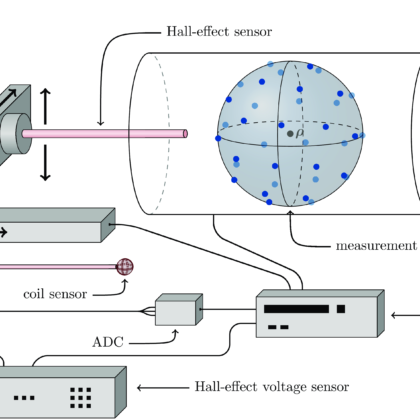
Magnetic fields are at the core of many imaging technologies. A widely known modality is MRI, a standard procedure in medical imaging, which is however limited by a long scanning time and the ability to only image anatomical regions containing sufficient amounts of water. The more recent magnetic particle imaging (MPI) instead promises functional images of the dynamics of nanoparticle tracers with high temporal resolution.
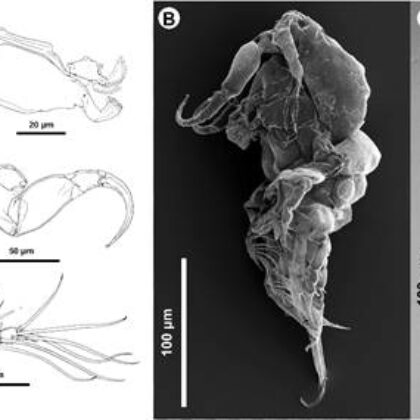
This study not only adds valuable information about Brazil’s overlooked parasite diversity but also challenges how we classify one of the most important groups of fish parasites. It’s a reminder that even in familiar waters, there's still a lot left to discover.

How instructors are responding to the rise in AI Artificial intelligence (AI), while not a new topic, has risen in popularity since the development of software like ChatGPT and image generators that create visuals from phrases such as ‘purple dog riding a bike.’…
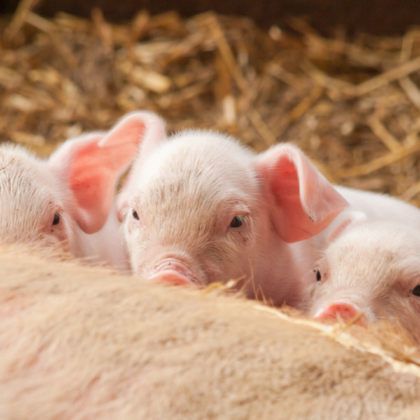
While it's well known that pigs need amino acids to grow, what’s less understood—but just as important—is how these nutrients influence the fate of immune cells: whether they become fighters, peacekeepers, or memory cells for future protection.

Reducing nitrogen oxides emissions from aviation has been an endeavor for the aeronautics industry for several decades along with increasing efficiencies of turbofan engines.

Transitioning into parenthood is a joyful yet often overwhelming life event. Helping parents feel more confident during this time is important for their well–being and for healthy child development.

Prof.-Dr. Shijun Liao – Shanghai Jiao Tong University has recently been appointed as an editorial board member of the Journal of Fluid Mechanics. To celebrate, Shijun Liao participated in a Q&A with the Journal.

Since last year, Renewable Agriculture and Food Systems has published two additional papers related to bees and pollinator health and are celebrating World Bee Day with an update to their World Bee Day Collection.

JFM Rapids is a well-established section in JFM that continues to provide a highly visible venue for short, high-quality, articles addressing timely research challenges of broad interest. The Rapids editors have selected the most interesting recent articles to inspire and motivate your submission.

Nearly every scientist or engineer today needs to learn to program, but very few want to learn to program. Scientists and engineers code to live; they don’t live to code.…

A major research focus of the Institute of Propulsion Technology at the German Aerospace Center (DLR) is increasing engine compressor efficiency. In this context, the intermediate compressor duct (ICD), which connects the low-pressure compressor (LPC) with the high-pressure compressor (HPC) in a civil jet engine is of eminent significance.

Elephant grass [Cenchrus purpureus (Schum.) Morrone] is an outstanding forage crop widely used in tropical regions due to its high biomass yield and climatic adaptability. However, considerable variability exists among cultivars, making it essential to understand how the management of genotypes with differing in stem elongation potential can impact forage accumulation and quality for ruminants
In this paper, “Off-Board Aerodynamic Measurements of Small-UAVs in Glide Flight Using Motion Tracking,” the effectiveness of using motion capture technology for aerodynamic testing of sUAVs is explored.

Business Analytics, a new textbook from author and professor Richard Huntsinger is uniquely designed for both the business-oriented and data science-oriented student.…
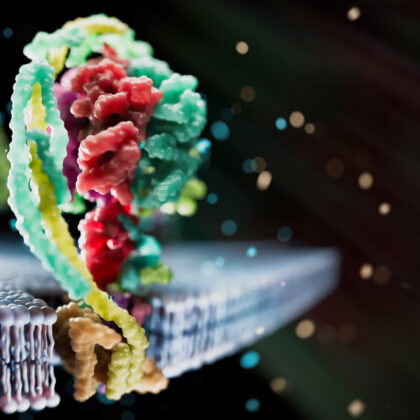
Metabolism, the intricate web of biochemical reactions that sustain life within cells, serves as the powerhouse driving essential cellular functions. At the heart of metabolism lies the provision of energy and building blocks crucial for the synthesis of macromolecules, vital for cellular structures, growth, and proliferation. This complex network comprises thousands of reactions catalysed by enzymes, involving an array of co-factors and metabolites.

As unmanned aerial systems (UAS) become increasingly central to military and civilian operations, ensuring that their operators maintain optimal mental performance is critical.

Parasitology mark World Malaria Day 2025 and take a moment to reflect upon a few key articles and conference activities that contribute to and support the cause.
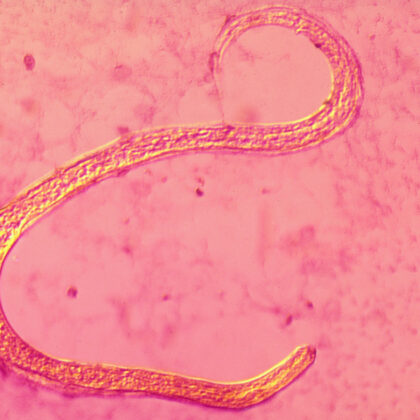
The microscopic parasite Strongyloides stercoralis infects millions of humans worldwide, often without symptoms. For years, the treatment of choice has been ivermectin, a drug that has been recognized for its use in combating diseases, such as river blindness. However, what is another option? Our recent study compared ivermectin to its lesser-known antiparasitic, moxidectin, and the results were promising.

The latest Paper of the Month for Bird Conservation International is The impact of storm-induced tree loss on the population of Wilkins’s Finch Nesospiza wilkinsi and is available as open access.…

I am very excited and extremely honoured to be the Joint Editor in Chief of Animal Welfare (AWF). Professor Bas RodenburgUtrecht University, The Netherlands Can you briefly explain the journal’s aims and scope?…

If left unchecked, both overabundant white-tailed deer populations and invasive shrubs like Amur honeysuckle (Lonicera maackii) can devastate deciduous native tree regeneration. Yet, a management strategy focused only on deer, or only on invasive shrubs, results in little or no forest health improvement, according to research from Ohio, spanning more than 10 years.

Beyond just the discovery of this invasive species on New Jersey shores, this study reveals the usefulness of reporting platforms like iNaturalist. Checking kilometers of coastline requires many hours of work – far beyond what is possible for an academic study. But through reporting of sightings, citizen scientists can provide a wealth of useful data. Indeed, since the publication of the paper, the beadlet anemone has now been found to the north in New York State. The colonists are spreading out.
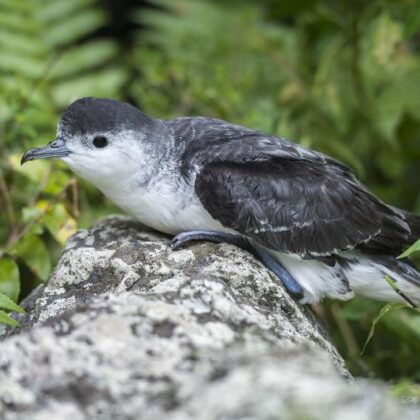
The latest Paper of the Month for Bird Conservation International is Tracking the non-breeding range of Rapa Shearwater Puffinus myrtae, a Critically Endangered seabird of the South Pacific Ocean and is available as open access.…

Until now, not much was known about the influence that nozzle type and application volume have on weed control efficacy with remotely piloted aerial application systems (RPAASs). However, new research shows that RPAAS applications using low-drift nozzles at low spray volumes (1.0–1.5 gallons/acre) can achieve weed control levels comparable to ground sprayer applications at 10 gallons/acre in turf.
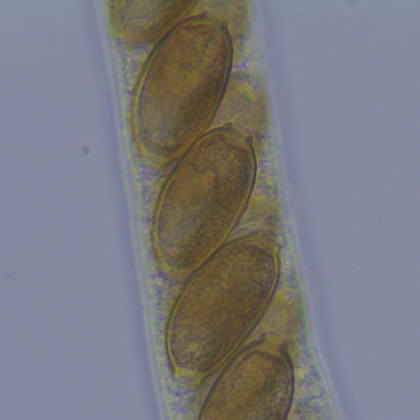
The parasite faunas of wood mice (Apodemus sylvaticus) and bank voles (Myodes glareolus) have often been studied by infectious disease ecologists and parasitologists.…

As World Water Day is celebrated around the globe, Cambridge University Press and its Prisms journals are leading the way in the fight to ensure a sustainable future for the World’s water resources.…
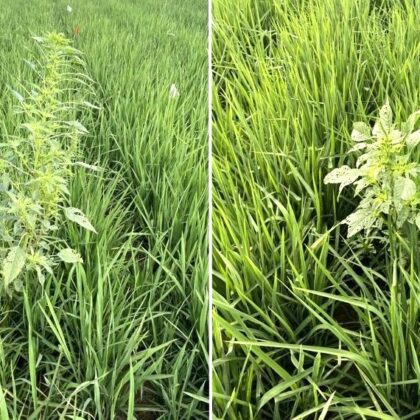
A recently published article in the journal Weed Science shows that successful, in-furrow rice production greatly hinges on Palmer amaranth (Amaranthus palmeri) weed pressure – before, during and after the growing season.

What does it take to make conservation work? If you thought funding and science were sufficient, think again. A new study by Brooks et al.…

Corn (Zea mays L.) is one of the world’s most vital crops, supporting food security, livestock feed, and biofuel industries. Since 1960, the global corn harvested area has undergone significant transformations driven by technological advances, economic shifts, and environmental constraints. In our recent study, Global Corn Area from 1960 to 2030: Patterns, Trends, and Implications, we analyzed over 60 years of data and used 1,000 ARIMA models to project future trends, providing critical insights for policymakers, researchers, and the agricultural sector.

Please could you tell us about your research background and interests? I am a professor at Department of Biological Sciences and Technology, School of Environmental Studies, China University of Geosciences-Wuhan (CUG-Wuhan).…

In recent years, the application of Monte Carlo (MC) techniques in radiotherapy has garnered significant attention due to their unparalleled accuracy in dose calculation and treatment planning.…

The latest Paper of the Month for Journal of the Marine Biological Association of the United Kingdom is The longest documented travel by a West Indian manatee and is freely available for one month. …
Few researchers have looked at the consent processes for patients who require radiotherapy treatment but are considered to lack the mental capacity to consent for themselves and no published research has identified the education practices surrounding consent and capacity for therapeutic radiographers working in radiotherapy departments.…

Grazing pasture provides a highly nutritious, low cost feed and energy supply for ruminant animals, while also converting a human inedible feed source into a human edible feed source in the form of meat and dairy products. However, to efficiently convert the pasture into animal products requires optimal management practices in pasture based production systems. Two of the fundamental requirements for pasture based systems, are rotational grazing and optimal roadway networks for animal movement on the farm.
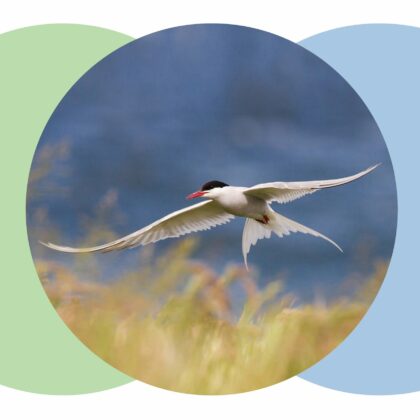
Every year, an increasing proportion of scientific articles are published open access, which means they are fully available to all, rather than being hidden behind a subscription paywall. There are various reasons for this trend, but all are underpinned by the fact that publicly available research enables greater impact and visibility, while also increasing the accessibility of scientific knowledge.

Imagine training for a life-or-death situation, only to find that the skills you learnt do not translate when it matters most. This gap in training tragically became a reality in the case of Air France 447, where ineffective responses to an abnormal situation contributed to a fatal crash. While flight simulators have long been a cornerstone of pilot training, their limitations are pushing the industry to explore new technologies. Could virtual reality (VR) revolutionise how pilots are trained?

The Aeronautical Journal December 2024 Vol 128 No 1330 Global air transport is a significant contributor to anthropogenic environmental impact. The use of kerosene for propulsion produces carbon dioxide and water vapour, both greenhouse gases, plus a mixture of nitric oxide and nitrogen dioxide that changes the levels of atmospheric, ozone and methane, also greenhouse gases.…

A strategy utilizing both preemergence (PRE) and postemergence (POST) herbicide treatments optimized weed control outcomes in early planted soybean. Researchers conducted their study in 2021 at three locations across Central Illinois.

Verbal language, one of the hallmarks of human beings, enables us to express intricate thoughts, transmit cultural knowledge, and connect through generations. It is also one of the most studied domains in disciplines ranging from social sciences to neuroscience. Within this broad realm, the suffixing bias has turned out to be a particularly compelling phenomenon that continues to fascinate researchers as they attempted to provide an answer to the following question: Why do most world's languages use suffixes more than prefixes to convey grammatical meanings like tense or number? And what is this related to? Our general cognition? Is it language-specific? Or even an accidental distribution caused by some random factors that are not related to language cognition per se?

Frederick W. Lanchester was a well-known automotive engineer in the late 19th and early 20th centuries in England.

As the global energy crisis intensifies and non-renewable resources, particularly fossil fuels, approach depletion, sustainable alternatives are gaining global prominence. Biogas plants offer numerous advantages, making them a sustainable and eco-friendly solution for energy generation and highlighting the importance of waste management.

These studies, led or co-authored by women, published in Oryx, reinforce the essential role of female scientists in addressing global conservation challenges. As we celebrate this day, we recognise their dedication to shaping a sustainable future for our planet.

These studies, led or co-authored by women, reflect the vital role of female scientists in addressing pressing conservation challenges. As we celebrate this day, we recognise their commitment to safeguarding bird species and their habitats for future generations.

As we celebrate the incredible contributions of women in science, it’s time to make space for even more voices, ideas, and innovations. We encourage you to share your work by submitting to Quarterly Reviews in Biophysics or QRB Discovery. Your research can inspire others, break down barriers, and shape the future of science.

On 30th January, we celebrate World Neglected Tropical Diseases Day. This annual celebration highlights the hard work and achievements of the many researchers, medical workers, NGOs and other committed individuals in this field, and acts as a convenient forum to demand and sustain the necessary concerted actions to #BeatNTDs.…
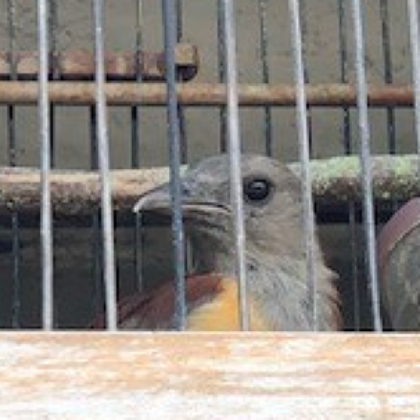
The latest Paper of the Month for Bird Conservation International is Poisonous pitohuis as pets and is available as open access. In our line of work, we come across new trends in the use of wildlife.…
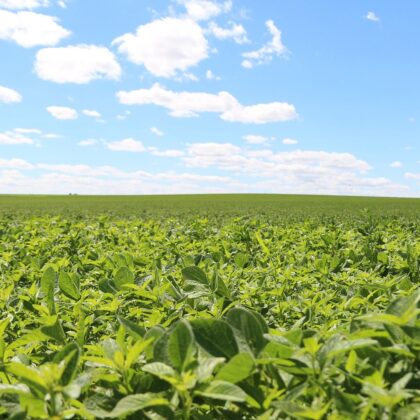
Recent research shows promise for controlling herbicide-resistant weeds, such as waterhemp, in soybean fields by using a seed impact mill at harvest.

“Professor Bernard Corfe’s strategy for JNS will be to continue to build on JNS’s reputation for quality, to publish work supporting scientific reproducibility (and to support research identifying irreproducibility), and to continue to emphasise the critical place of this mission in a changing world of scientific publishing.”…

Lodging, where plant shoots band due to environmental factors, is a major problem for crop producers. It results in poor grain filling, pod loss, and increased susceptibility to diseases, all of which impact yield and quality. While breeding for lodging resistance is a long-term approach, researchers are now looking for quicker solutions.

Stopping and reversing deforestation is a top priority across the tropics. Numerous policies and programs try to stem forest clearance, encourage tree planting, and restore forest landscapes.…

A recent study published in QRB Discovery sheds light on the impact of humidity on the infectivity of the SARS-CoV-2 virus, responsible for COVID-19 transmission. The study found that there was a notable decrease in the infection rate as the surrounding air's relative humidity increased.

I am very excited and extremely honoured to be the new Editor in Chief of the Publication of the Astronomical Society of Australia (PASA).
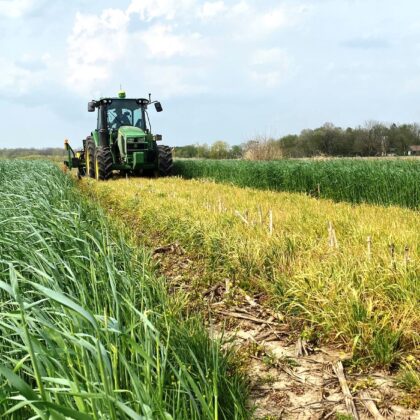
Recently published research in the journal Weed Science shows planting soybean into a green, living cover crop effectively suppresses two problematic Amaranthus weed species – waterhemp and Palmer amaranth – when integrated with pre-emergence (PRE) herbicides.
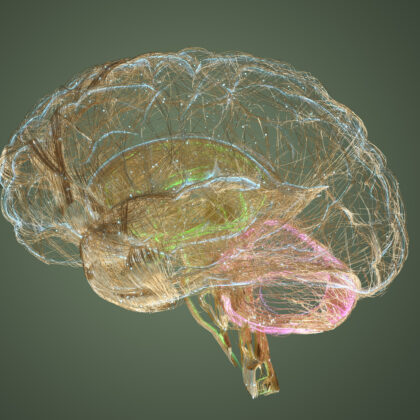
The clinical presentations in neurosurgery are often complex and due to this specialty being dominated by emergency referrals, staffed by registrars on sparsely populated rotas, a system to absorb at times highly disorganised and disparate patient histories and examinations and transform these into logical thought processes for consumption of registrar and consultant colleagues to enable implementation of clear plans is always required.

As the world copes with the impacts of climate change, sustainable agriculture and resilient crops are more important than ever. Enter Onobrychis viciifolia (commonly known as sainfoin), a versatile forage legume that could be a game-changer for ecosystems and agriculture in the face of rising temperatures and unpredictable weather patterns.

A recent study by Leticia G. Gasparotto and colleagues from the University of São Paulo explores how Brazil's agricultural advancements can help close this yield gap in SSA. The yield gap refers to the difference between the potential yield under ideal conditions and the actual yield achieved by farmers. In Brazil, the yield gap for maize is about 50% of its water-limited yield potential. In SSA, this gap is much larger, with actual yields representing only about 9% of the potential.

In the last few years, the interest for the development of feed additives has significantly increased, with the essential oils emerging as a promising alternative for the substitution of antibiotics in animal production. The interest in the search for alternatives to antibiotics in poultry production has been increasing, especially with the focus on essential oils due to their remarkable bioactive properties. This interest is based on the biological properties of the essential oils, such as antimicrobial, antioxidant, anti-inflammatory and immunomodulatory activities.
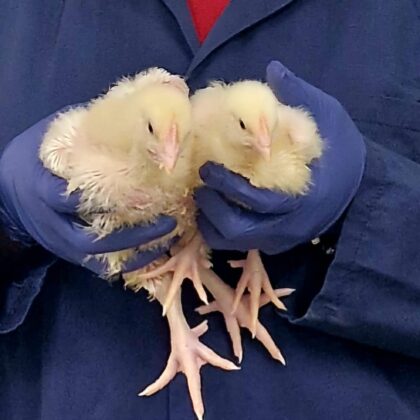
The contemporary broiler chicken exhibits an impressive growth rate and robust constitution under commercial production systems resulting in an economical and high quality protein source. Broiler chickens are selectively bred to produce an animal which displays predictable growth performance and hence a high level of flock uniformity.

December 5th is World Soil Day. Recommended by the International Union of Soil Sciences in 2002, the establishment of World Soil Day was led by the Kingdom of Thailand as part of the Global Soil Partnership—it was formally adopted by the UN General Assembly after endorsement by the FAO in December 2013.…
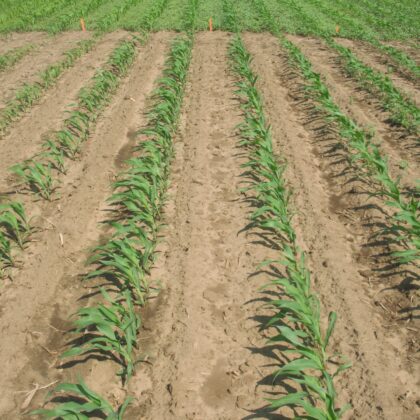
Diflufenican, a new mode of action herbicide for preemergence use in corn, demonstrates effectiveness as an integrated weed management strategy for multiple-herbicide resistant (MHP) waterhemp (Amaranthus tuberculatus) control. That’s the conclusion from a recently published research article in the journal Weed Technology, a journal of the Weed Science Society of America (WSSA)

We are delighted to announce that the new front cover image for Parasitology 2025 features the protist Trypanosoma cruzi, photograph taken by Ramiro Tomasina & Carlos Robello. This parasite is responsible for American trypanosomiasis or Chagas Disease in South America. It infects a wide range of mammalian hosts by stercorarian transmission from contaminated faeces of Reduviid bugs.

2024 JFM-Flow China Symposium: from fundamentals to applied mechanics, was an a landmark event co-hosted by the School of Aeronautic Science and Engineering at Beihang University, Beijing and arttended by 160 local experts and 3000 online viewers in China.

The scientific programme was very exciting. It allowed several leaders in this field to share their latest experiences and findings from their laboratories. In total, there were eight speakers representing universities across the UK, Ireland & Europe. With a larger international audience on site, speakers intermingled during lunch and break sessions for discussions and collaborative networking.

At the forefront of aviation evolution is the concept of the 'Hangar of the Future', a game-changing approach that redefines aircraft maintenance and operations

Farmers and land-managers looking to reduce their herbicide applications now have another promising option via machine-vision technology. That’s the summary from a recently published research article in Weed Technology, a journal of the Weed Science Society of America (WSSA).

My introduction to the fascinating world of parasites and Fasciola was accidental, or rather, a fluke! I met Professor John Dalton, the lead of the Molecular Parasitology Laboratory while working on a drug metabolism and hepatotoxicity project using HepG2 cell-derived spheroids at the Department of Pharmacology and Therapeutics at the University of Galway. After several hours of parasite chat, I was hooked and embarked on a PhD migratory pathway!

To recognize World Toilet Day, Renewable Agriculture and Food Systems is featuring a series of four articles reviewing the use of human waste in agriculture. They investigate what drives growers to use human waste as a fertilizer supplement, particularly in sub-Saharan Africa, along with the potential benefits and risks of such use. One study also looks at US growers’ perceptions of recycled water and municipally treated wastewater, including how different understandings impact risk and willingness of use.

Parasitology are Celebrating World Toilet Day 19th November 2024 Those that study parasitic diseases, particularly the soil-transmitted helminthiases and/or giardiasis, know that the enduring theme of the toilet and sanitation typically conjures up serious academic debate.…

This week sees the launch of Cambridge Prisms: Drylands – a multi-disciplinary journal aimed at understanding and protecting the world’s most arid landscapes.These…

JFM Rapids is a well-established section in the JFM that continues to provide a highly visible venue for short, high-quality, articles addressing timely research challenges of broad interest. The Rapids editors have selected the most interesting recent articles to inspire and motivate your submission.

A new Weed Science Society of America research publication provides insights on repurposing an invasive tree species to produce edible mushrooms.

On the conditions for absolute minimum fuel burn for turbofan powered, civil transport aircraft and a simple model for wave drag

October 16th is World Food Day, commemorating the 1945 founding of the United Nations Food and Agriculture Organization (FAO). The Day also aims to raise awareness around the foundational issues impacting poverty and hunger around the world.…

In our 2024 paper, “Integrative Research of Mediterranean Climate Regions: A Global Call to Action“ we highlight the need for a collaborative, interdisciplinary approach to studying Mediterranean-climate regions.…

September 29th is designated as the International Day of Awareness of Food Loss and Waste by the United Nations General Assembly and is co-convened by the Food and Agriculture Organization and the United Nations Environment Program.…

This week, Geo-Bio Interfaces published its first open access articles in its Microbial Biomineralization collection. As an official journal of The Mineralogical Society of the UK and Ireland, Geo-Bio Interfaces supports a growing research community working at the intersection of geoscience and bioscience.…

Beyond the Clouds There is Light. This is an appropriate descriptor of our industry. It is now emerging from the dark clouds of the Covid-19 pandemic, stronger and with a primary aim to improve environmental performance.

Fires are increasing in frequency, geographic extent and threat to infrastructure and people. Research described here in The Aeronautical Journal can inform fire fighters to improve the response.
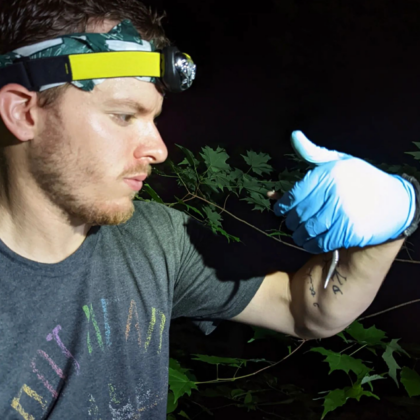
Welcome to our “Meet the Editors” series, where we interview the editorial team about their work and their relationship to the journal.…
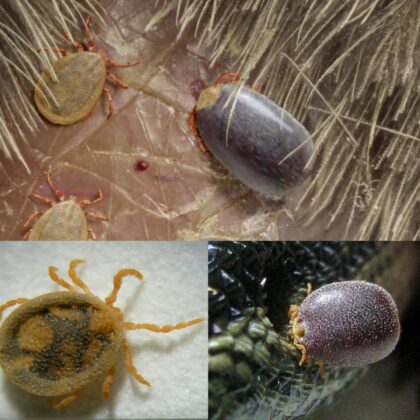
Before 1935, ticks were composed of the hard (Ixodidae) and soft (Argasidae) tick families. In 1931, Gerald Bedford described a peculiar tick species named Nuttalliella namaqua, which he considered a missing link between the two families, since it shared characteristics with both families.

The good, the bad, and the ugly: this article explores improving pilots' tactical decisions in air combat training using the critical decision method and introduces a paper published by Cambridge University Press in The Aeronautical Journal.

Understanding the evolution of nature through a model describing collaborative population dynamics of plants and insects.

The Aeronautical Journal June 2024 Vol 128 No 1324 Over the past 30 years, the atmospheric science community has improved our understanding of how aviation affects the environment.…

Friday, August 9th was designated as the International Day of the World’s Indigenous Peoples in December of 1994 by the UN General Assembly resolution 49/214.…

Lian-Ping Wang, Southern University of Science and Technology in China has recently joined the Journal of Fluid Mechanics Editorial Board for JFM Rapids. To celebrate, Lian-Ping Wang participated in a Q&A with the Journal.

The intensification of production systems has become essential, as the profit margin in beef cattle farming has been steadily decreasing, requiring producers to be more efficient in conducting their livestock projects.

In June this year, CALDERA, the new Nordic-Japan research programme on “Catastrophe Archaeology” was awarded Antiquity’s Ben Cullen Prize 2024 for its opening pilot-study of human responses to the Holocene’s largest ever volcanic eruption.…

Global sea surface temperatures are rising and have hit record high values in recent months. This potentially threatens seabirds, their prey and their habitats, both on land and at sea.

Winter wheat is one of the most important crops in Germany and worldwide. As such, it is grown after various preceding crops (pre-crops) in a large number of possible crop rotations. It is well known that growing wheat after wheat causes yield losses compared to growing wheat after beneficial break-crops.

The latest Paper of the Month for Parasitology is First report of apparent praziquantel resistance in Dipylidium caninum in Europe and is freely available for one month. …

The latest Paper of the Month for Parasitology is ‘Naturally acquired immunity to Plasmodium pitheci in Bornean orangutans (Pongo pygmaeus)‘ and is freely available for one month. …
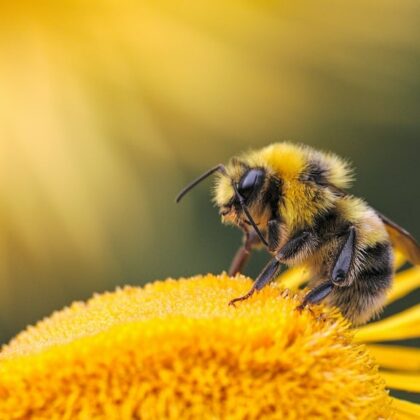
Monday, May 20th is World Bee Day. Designated by the United Nations in 2017, World Bee Day recognizes the urgent need to protect bees and other pollinators in support of innovative, coordinated, and environmentally sound sustainable development. Bees and other pollinators provide key services in sustainable agriculture systems that support human livelihoods, nutrition, and food security.

This recent study enhances the understanding of alternative fuel atomisation characteristics for a more sustainable aviation industry.

Considered among the “world’s worst” aquatic weeds, a northern hydrilla subspecies (lithuanica) hinders recreational activities by forming dense canopies.…

Recently published research in the journal Weed Science shows that drill-interseeded cover crops into vegetative growth stage 3 (V3) corn performs well in Northeast U.S. production regions.